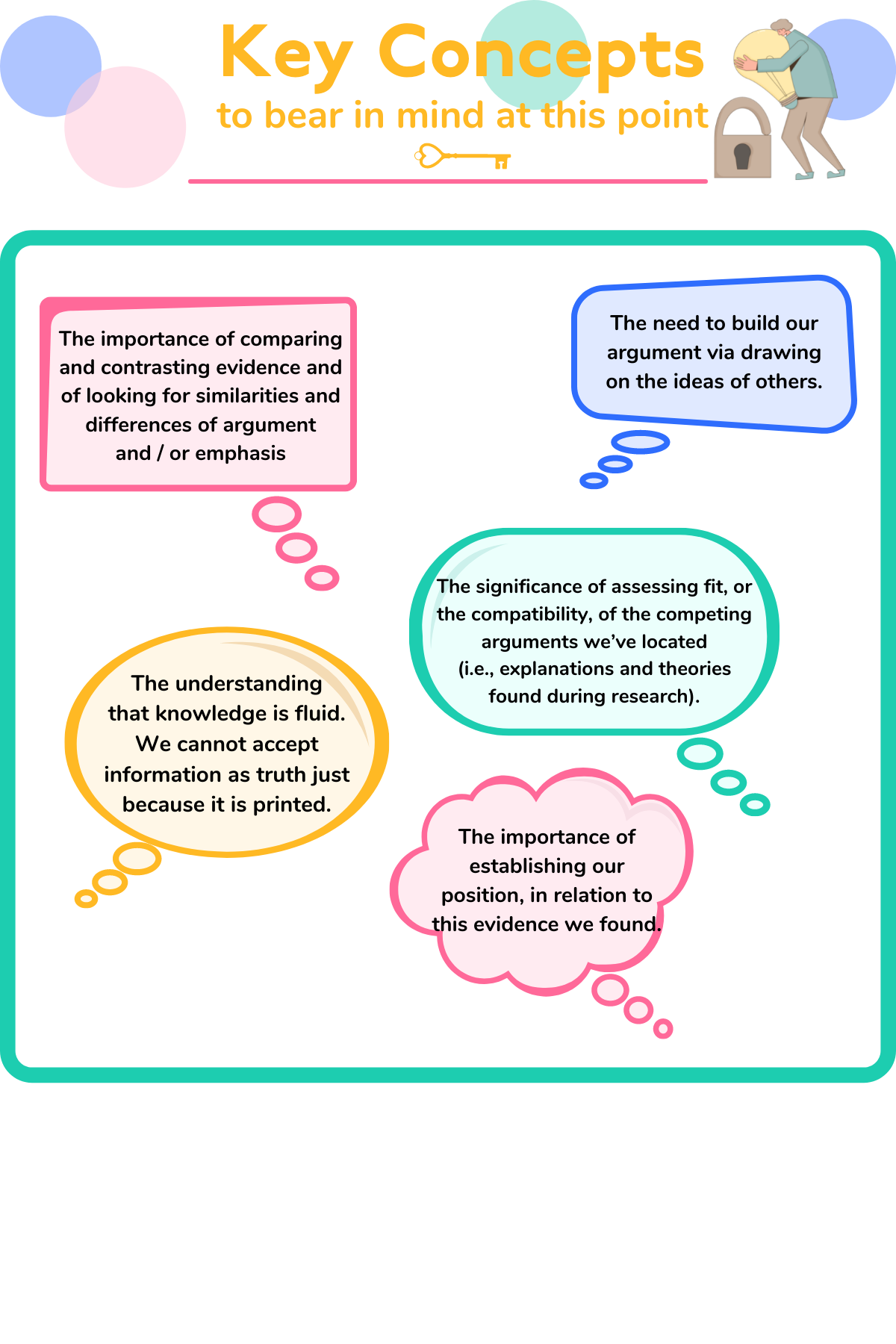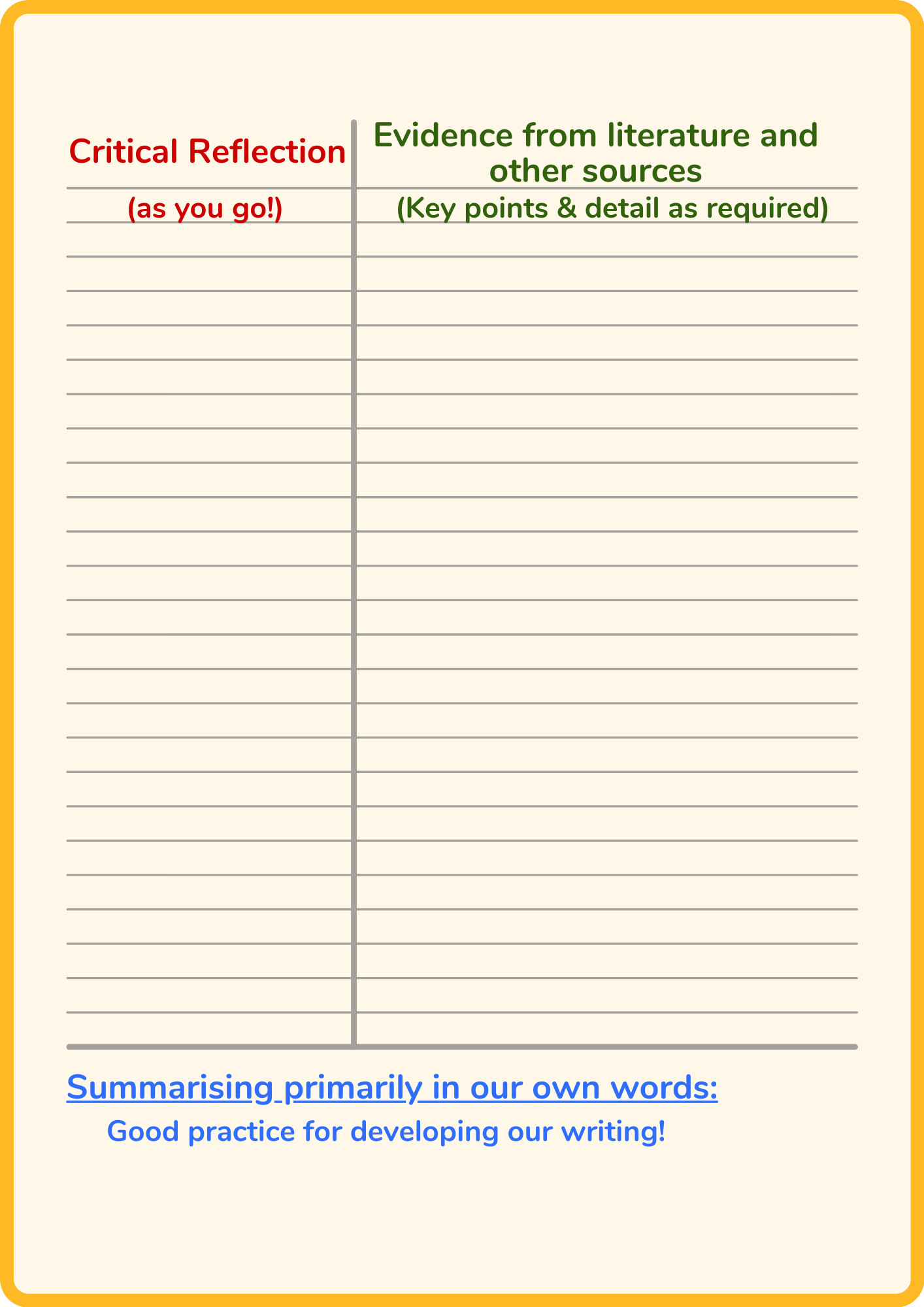 Building an argument is fundamental to the very nature of academic writing. We use the ideas of others to build and develop carefully considered arguments of our own.
Building an argument is fundamental to the very nature of academic writing. We use the ideas of others to build and develop carefully considered arguments of our own.
Assignment topics will always tend to focus on an issue – or issues – with some level of debate, where ideas and assumptions are contested as opposed to being universally-accepted truths.
It isn't just about relaying the arguments we find, but evaluating the importance and significance (the ‘value’) of those arguments, and making them work for us while staying true to the meaning of the original source.
Note-making v. note-taking
We need to adopt a critically-analytical approach at the information-gathering stages when we are researching for any assignment.
Our tips
Avoid passive note-taking. Accumulating information we think will be useful, but leaving most of the critical thinking to after, will leave you with too much information which may not be actually useful.
- Avoid noting down information which is not directly relevant to your analysis
Note-making is active. The process of making notes should be when we make sense of information.
- Organise, attach values, priorities, and significance, and establish your position whilst making notes
Try something new!
Ideally, we want a model of note-making that allows us to critically engage with the information and facilitates us writing about it.
Cornell for ind ependent study
ependent study
Here, we show how our critical thinking can be improved when note-making if we develop a system to think critically and to record this thinking simultaneously.
- The main body to the page is where you would add the notes from the lecture content
- The column on the left is for keywords, thoughts, questions, ideas, and comments
- The bottom section is where you briefly summarise the page
It doesn’t have to be Cornell to help us achieve this, we can achieve this through more conventional forms of note-making.
The important part is that we are asking critical questions and get our thinking down on the page.